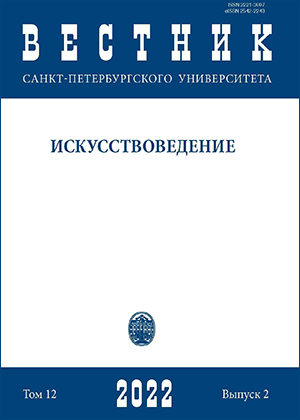The Soviet Past on the Post-Soviet Screen
DOI:
https://doi.org/10.21638/spbu15.2022.202Abstract
A popular and widespread theme in contemporary Russian cinema and television is the Soviet past reconstructed with various degrees of accuracy. This “documentary desire” aspires not only to access historical reality through visual representations of Soviet life in the 1960s, 1970s, or 1980s, but to use Soviet images as an instrument for emotional manipulation of the viewer by evoking or creating “memories” for those who do not have the Soviet experience. The article focuses on strategies, from the “visual document” to the “factory of memories,” that are used to present the Soviet past on the small and large screens. It is interesting to consider the purpose of recycling the Soviet theme. Addressing the past does not necessarily constitute nostalgia; it could be a glimpse into the future, or rather, a construction of the future through the past. The viewer, involved in the “make-believe” strategy, not only begins to believe that the events shown on screen took place in reality, but also that the source of information about those events is reliable. The cinematic “picture” either creates an image of the Soviet past or replaces the existing conception in the viewer’s mind. Interestingly though, the study of TV series about the Soviet past demonstrates that the rejection of the inevitability of the traumatic experience of tragic moments in Soviet history may paradoxically contribute to finding alternative solutions for social conflicts in the present and in the future, and this is what these TV series aspire to do.
Keywords:
Soviet past, post-Soviet cinema and television, biopic, historical film, TV series, recycling
Downloads
References
Downloads
Published
How to Cite
Issue
Section
License
Articles of "Vestnik of Saint Petersburg University. Arts" are open access distributed under the terms of the License Agreement with Saint Petersburg State University, which permits to the authors unrestricted distribution and self-archiving free of charge.






